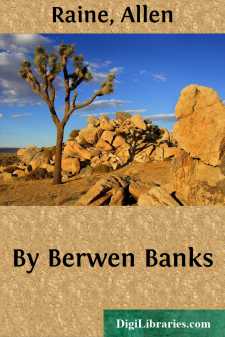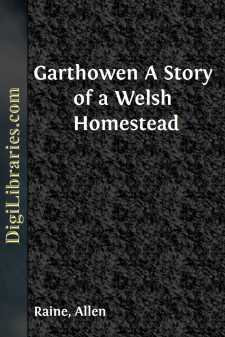Categories
- Antiques & Collectibles 13
- Architecture 36
- Art 48
- Bibles 22
- Biography & Autobiography 813
- Body, Mind & Spirit 142
- Business & Economics 28
- Children's Books 15
- Children's Fiction 12
- Computers 4
- Cooking 94
- Crafts & Hobbies 4
- Drama 346
- Education 46
- Family & Relationships 57
- Fiction 11829
- Games 19
- Gardening 17
- Health & Fitness 34
- History 1377
- House & Home 1
- Humor 147
- Juvenile Fiction 1873
- Juvenile Nonfiction 202
- Language Arts & Disciplines 88
- Law 16
- Literary Collections 686
- Literary Criticism 179
- Mathematics 13
- Medical 41
- Music 40
- Nature 179
- Non-Classifiable 1768
- Performing Arts 7
- Periodicals 1453
- Philosophy 64
- Photography 2
- Poetry 896
- Political Science 203
- Psychology 42
- Reference 154
- Religion 513
- Science 126
- Self-Help 84
- Social Science 81
- Sports & Recreation 34
- Study Aids 3
- Technology & Engineering 59
- Transportation 23
- Travel 463
- True Crime 29
By Berwen Banks
by: Allen Raine
Description:
Excerpt
CHAPTER I.
BERWEN BANKS.
Caer Madoc is a sleepy little Welsh town, lying two miles from the sea coast. Far removed from the busy centres of civilisation, where the battle of life breeds keen wits and deep interests, it is still, in the opinion of its inhabitants, next to London, the most important place in the United Kingdom. It has its church and three chapels, its mayor and corporation, jail, town hall, and market-place; but, more especially, it has its fairs, and awakes to spasmodic jollity on such occasions, which come pretty often—quite ten times in the year. In the interims it resigns itself contentedly to its normal state of lethargy.
The day on which my story opens had seen the busiest and merriest fair of the year, and the evening found the little town looking jaded and disreputable after its few hours of dissipation, the dusty High Street being littered with scraps of paper, orange-peel, and such like débris. The merry-go-rounds and the "shows" had departed, the last donkey-cart had rattled out of the town, laden with empty gingerbread boxes.
In the stable of the Red Dragon three men stooped in conclave over the hind foot of a horse. Deio, the ostler, and Roberts, the farrier, agreed in their verdict for a wonder; and Caradoc Wynne, the owner of the horse, straightened himself from his stooping posture with a nod of decision.
"Yes, it's quite plain I mustn't ride him to-night," he said. "Well, I'll leave him under your care, Roberts, and will either come or send for him to-morrow."
"Needn't do that, sir," said Roberts, "for I am going myself to
Abersethin on Friday; that will give him one day's complete rest, and
I'll bring him up gently with my nag."
"That will do better," said the young man. "Take care of him, Deio," he added, in good, broad Welsh, "and I will pay you well for your trouble," and, with a pat on Captain's flank and a douceur in Deio's ready palm, he turned to leave the yard. Looking back from under the archway which opened into the street, with a parting injunction to Roberts to "take care of him," he turned up the dusty High Street.
"Pagh!" he said, "it has been a jolly fair, but it hasn't sweetened the air. However, I shall soon have left it behind me," and he stepped out briskly towards the straggling end of the street, which merged into a wild moorland country.
"There's a difference between him and his father," said Deio to his companion, as they led Captain back to his stall. "See the old 'Vicare du' hunting between his coppers for a threepenny bit! Jâr i man! you would think it was a sovereign he was looking for."
"Yes," said Roberts, "the old Vicare is a keen man enough, but just; always pays his bills regularly; he is not as black as they make him out to be."
"No, I daresay! They say the devil isn't, either," said Deio.
It was very evident the person in question was no favourite of his.
Meanwhile Caradoc, or Cardo as he was called all over the country side, the "Vicare du's" only son, had begun his tramp homewards with a light heart and a brisk step....



